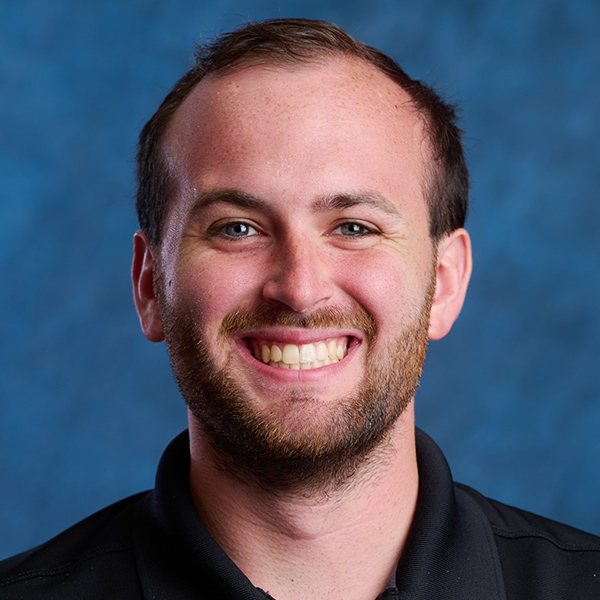Biography/Summary Resume
Parker Callegari started his journey with collegiate recreation at The University of Texas at Austin. There he was a member of the club rugby team and eventually president of the club. Having worked closely with the RecSports Department, Parker found his way to working for the Sport Club and Intramural programs his senior year. There he was told of the opportunity of continuing a career in collegiate recreation. After graduating with a degree in Sport Management, Parker was able to move close to home, finding a Graduate Assistant position at Sam Houston State University. At Sam Houston, Parker is currently the Graduate Assistant of Intramurals and Club Sports, as well as pursuing a Master’s in Sport Management degree.
Please provide a statement of your personal views on the role and contributions of collegiate recreation in higher education. In your response, describe how collegiate recreation has influenced your development.
The role of Student Leadership is one to be taken with pride. Not only is the student filling this position progressing their professional development but making an impact on students in the region that they represent and/or the entirety of NIRSA. Collegiate recreation has greatly influenced my development as I started my journey of collegiate recreation as a member of the club rugby team. I was able to grow as an individual and if not for the opportunities of being in a club that my Rec sports department offered, I would not have the confidence, work ethic, or passion for collegiate recreation that I have today. Throughout my time with collegiate recreation, I have progressed in all of those areas and more.
Within the context of the NIRSA Strategic Plan, what area/item would you say is a major issue students face today? How would you address this issue during your term?
A major issue facing students would be health and wellbeing, specifically mental health and wellbeing. We live in the time in history where social media is king. Social media is a great marketing tool, a way to express to the world who you are and how you feel and is part of our culture. Social media has a hold of people’s attention, as the attention span of students has decreased, and the need to be on our phones and scrolling to occupy our time or to get out of an awkward interaction is at a high. Having depression and/or anxiety seem to be dropped into conversation as something regular us students deal with on a daily basis. Taking care of oneself and seeking help are the first steps to staying mentally healthy. Thanks to efforts and awareness of organization like NIRSA, students have a support network in their corner as NIRSA promotes healthy living.
Describe your contributions to NIRSA (i.e. presentations, volunteering, previous leadership roles, etc.) and identify how your involvement and experiences qualify you to advocate for and serve the students of the Association.
I have always longed to network with like-minded individuals in a setting like a NIRSA conference. I got the opportunity back in October to travel to Lubbock, TX to experience my first NIRSA Region 4 Conference. To say this opportunity was incredible, would be an understatement. I got to learn from great career professionals and bounce ideas off of the other students throughout the conference. Since the conference, I have been able to collaborate with other students on intramural programming. How to effectively give a soccer officials training and how to run single-day intramural events. I believe that advocation starts with communication and building a relationship with those you are serving.
The Student Leadership Team focuses on student development and Student Member recruitment and retention. What skills, talents, and perspectives would you bring to the Student Leadership Team that would contribute to this focus?
I believe my perspective as a previous club leader for several years, spending my time developing other leaders would be greatest contribution to the Student Leadership Team. Recruitment and retention are a pillar of my previous club, so bringing those tactics and experience will help with new student members to NIRSA. I think my ability to listen and understand different perspectives as well would help with the overall focus of the team.
Describe your leadership style. How will it benefit you and the rest of the Student Leadership Team?
My leadership style is usually described as a coach and mentor. With my current intramural officials, I challenge them during trainings and our weekly meetings. I have found that throwing at them difficult situations have prepared them for the games they officiate. Once they go onto the court and field, I let them show off their hard work. I fill in as their support, in their corner, to encourage them and celebrate with them through the victories. This style of leadership has allowed me to take a back seat, analyze what I can improve upon as well as the rest of my team.
As a member of the Student Leadership Team, you have the opportunity to leave a lasting impact on the field of collegiate recreation. However, we acknowledge and respect that you are a student first. Explain your strategies for maintaining a healthy balance between your various roles (student, volunteer, athlete, employee, etc.).
My main priority outside of the work I do in collegiate recreation, is finding time to do something I find enjoyable. This time includes relaxation watching movies, expanding my knowledge through reading, attending to my fish tanks, and spending time outside in some capacity. Doing things that I find enjoyable, maintain a schedule, and keeping in contact with my supervisors, friends, and family to coordinate my time have been how I maintain a healthy balance.



